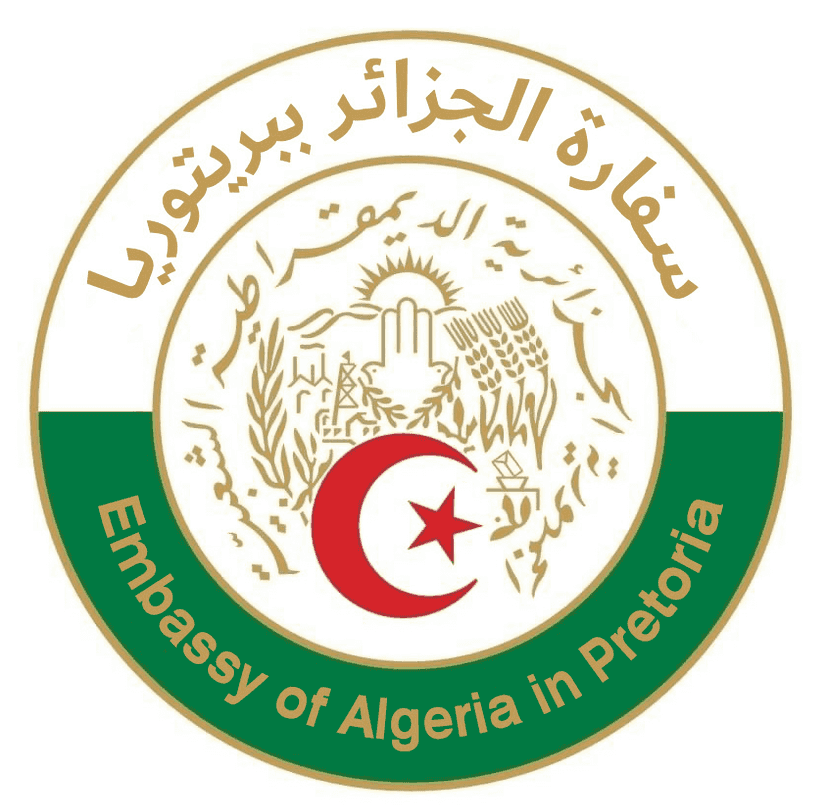President of the Republic chairs official inauguration of Djamaâ El-Djazaïr

President of the Republic, Abdelmadjid Tebboune, chaired on Sunday the official inauguration of Djamaâ El Djazaïr.
Djamaâ El-Djazaïr is a jewel of Islamic architecture and a religious, civilizational and scientific building that will contribute to preserving national religious referent and the constituent components of Algerian nation.
At the entrance to the mosque, the President of the Republic was welcomed by the rector of Djamaâ El-Djazaïr, Sheikh Mohamed Maâmoun Al Kacimi Al Hoceini, Minister of Religious Affairs and Wakfs, Youcef Belmehdi, and Minister of Housing, National Planning and the City, Mohamed Tarek Belaribi.
On this occasion, the President of the Republic took a souvenir photo with ulemas, imams and sheikhs from the Muslim world who were guests of Algeria.
The President of the Republic then followed, in the hall of honor of Djamaâ El-Djazaïr, a documentary on the different installations and structures of this civilizational and religious building.
The President of the Republic subsequently visited all the structures of the mosque, namely the Museum of Islamic Civilization, the Cultural Center with its conference room and library and the Higher School of Islamic Sciences "Dar El -Quran" with its study rooms and laboratories.
At the end of his visit, the President of the Republic performed the Dohr prayer with the delegation accompanying him, made up of senior state officials, members of the Government, ulemas, imams, sheikhs of zaouïas and eminent intellectual and religious figures from the Muslim world.
In a speech delivered on this occasion, the rector of Djamaâ El-Djazaïr welcomed the decision of the President of the Republic to officially inaugurate the mosque after the completion of the construction and development works of all its installations and structures, highlighting highlight the symbolism of the moment chosen for this inauguration, namely mid-chaâbane.
Built in the heart of the capital in the commune of Mohammadia according to seismic standards, Djamaâ El-Djazaïr has a large prayer room of 20,000 m2 that can accommodate up to 120,000 faithful.
It stands out for its octagonal columns erected in the large prayer hall and decorated with marble with dazzling white veins, its large mihrab and its 6 (six) kilometers of calligraphic writings.
The mosque has the largest minaret in the world, with a height of 265 meters, which has 43 floors served by panoramic elevators allowing you to observe the Bay of Algiers and its surroundings, 15 of which house a museum dedicated to history of Algeria and 10 others devoted to a research center and businesses.
A telescope has been placed at the top so that visitors to the site can enjoy the beauty of the capital's bay.
Djamaâ El-Djazaïr is also home to the National Higher School of Islamic Sciences "Dar El Coran", with a capacity of 1,500 places, dedicated to Algerian and foreign post-graduation students in Islamic sciences and human sciences. The school has classrooms, a multimedia room, a conference room and a boarding facility.
Djamaâ El-Djazaïr also includes other buildings, including a cultural center with a library that can hold up to one (1) million books, in addition to a helicopter landing pad, a two-level parking lot with capacity for 4,000 vehicles in the basement of a large esplanade lined with numerous gardens and ponds.
In May 2022, the executive decrees and statutes relating to Djamaâ El-Djazaïr were published, including the executive decree creating its scientific council and establishing its organization and functioning, the one modifying the status and name of the National Agency for the implementation and management of Djamaâ El Djazaïr to become the Management Establishment of Djamaâ El Djazaïr, the one establishing the National Higher School of Islamic Sciences (Dar El Coran) and the one establishing the Center for Research in Religious Sciences and dialogue of civilizations, which is responsible for promoting the values of moderation, the middle ground, tolerance and living together and working to preserve the national religious referent and the safeguarding of religious heritage.
The Djamaâ El-Djazaïr Library is, for its part, responsible for creating a manuscript restoration laboratory and establishing relations of cooperation and exchange with similar cultural and scientific establishments on a national and international scale.
The executive decree establishing the Museum of Islamic Civilization notes that the latter illustrates Islamic civilization in Algeria, in particular the historical stages which forged the national religious referent, the cultural and cultural heritage and the authentic traditions of Algeria, its architecture and its Islamic arts, as well as the history of the writing and publication of the Holy Quran.
